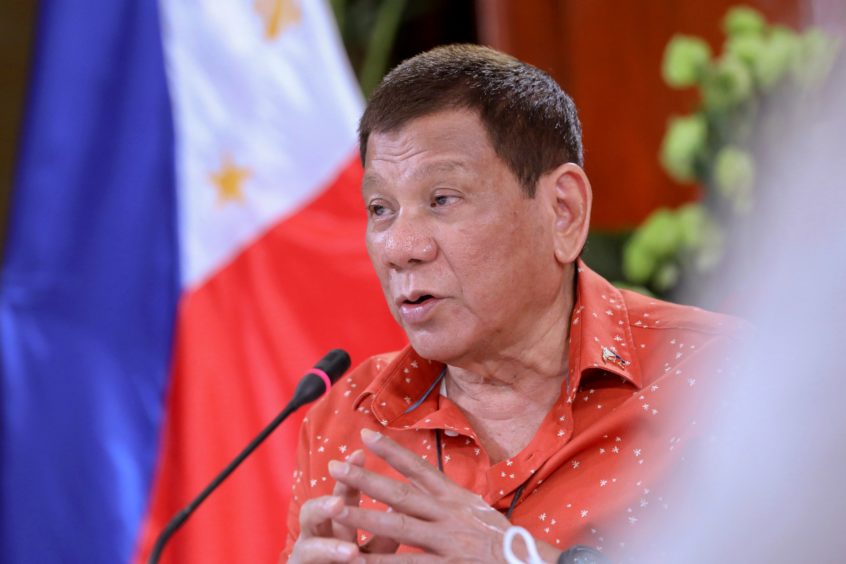
Philippine tycoon Dennis Uy’s Udenna conglomerate struck a deal worth up to $460 million to buy a gas exploration and development company from Shell last week. The deal, which attracted a premium valuation and boosts Udenna’s share in the Malampaya gas field to 90%, is positive for both the Philippines and Shell.
Shell got a good price for the asset and local player Udenna looks set to boost investment in the nation’s largest and only commercial gas field.
“The sale typifies the current M&A market in Asia, where local, regionally focused players are stepping into the shoes of the majors, providing fresh investment and impetus for assets, that although mature, still have a lot of potential left,” Andrew Harwood, Asia Pacific research director at Wood Mackenzie, told Energy Voice.
Malampaya Energy XP, a unit of holding company Udenna, will acquire all of Shell Philippines Exploration, which holds 45% of Service Contract 38 and includes Malampaya, it was announced last Thursday.
As Energy Voice reported previously, Philippine business tycoons, all bullish on the asset, had been jostling to buy Shell’s stake in the strategic deep-water Malampaya project. However, Udenna, which last year acquired Chevron’ 45% stake in the project, was always the favourite.
Udenna was able to use pre-emption and change of control clauses to maintain a stronghold on the sales process, despite Shell’s efforts to create a competitive environment. Still, given the future risk associated with the ageing field, which has been producing since 2002, the agreed deal price was good for Shell.
The base sale price agreed is $380 million, with Udenna paying up to an additional $80 million between 2022 and 2024 depending on asset performance and commodity prices.
Research consultancy Rystad Energy currently values Shell’s 45% stake at around $275 million based on Service Contract 38 expiring in early 2024. Udenna was likely forced to pay a premium as the local competition for Shell’s operating share was intense, Readul Islam, an Asia upstream specialist at Rystad Energy, told Energy Voice.
Significantly, Udenna can extend the life of the field as Shell has underinvested in recent years. Therefore, there will be upside if Udenna can find efficiencies or extend the life of the project.
There is a provision in the contract for a 15-year extension. Shell started the negotiating process for this extension with the government more than five years ago. However, the Anglo-Dutch major has not made any substantial progress to date, an industry source in the Philippines told Energy Voice.
“Dennis Uy, the CEO of Udenna, is touted as a good friend of Philippines President Duterte. Perhaps, this relationship will facilitate the extension approval,” said the source.
Or put another way, Udenna may have already got assurance that the contract extension will be approved, added the source.
By acquiring the operatorship, including the strong Shell team, Udenna will have the experienced personnel to safely operate the field, work towards a contract extension, and secure investment to extend the life of Malampaya, said Wood Mackenzie’s Harwood.
Although the Malampaya service contract is due to end in 2024 production is projected to start slowing from next year, as the resource diminishes. However, further investment could see the life of the field extended. An undeveloped portion of the block, known as Malampaya East, is estimated to hold 2.83 billion cubic metres of gas. The mainstream view expects further exploration and appraisal success could prolong commercial production into the late 2020s.
“Shell Philippines, the old owners, wrapped under the banner of the new Udenna ownership, should be the best positioned to take Malampaya forward, whether by extending the life of the field itself or by extending the life of the existing facilities by negotiating third party access,” said Rystad’s Islam.
“Given the challenges of trying to attract international players to Philippines’ hydrocarbon industry, the government should be feeling satisfied with how things have turned out,” added Islam.
Indeed, the reality is that the big international oil companies (IOCs) are generally not investing in legacy assets, which raises energy security risk for countries like the Philippines. Assets, such as Malampaya, are better off in the hands of domestic players, who have a vested interest in keeping them going, and who do not have global investment portfolios that compete for capital.
Shell has relinquished its Malampaya stake as it reorganises its global asset portfolio. Following the deal, Udenna will hold 90% of Malampaya with the remaining 10% still held by state-owned Philippine National Oil Company (PNOC).
It is possible that smaller domestic players are brought in for minority shares, but there do not appear to be any immediate plans for Udenna to sell down its stake.
Malampaya delivers a fifth of the Philippines’ expanding electricity needs by supplying natural gas to five power plants in the northern Philippine island of Luzon, which included the capital Manilla.
READ MORE OF ENERGY VOICE’S PHILIPPINES COVERAGE: Philippines pushing for upstream renaissance
Recommended for you

